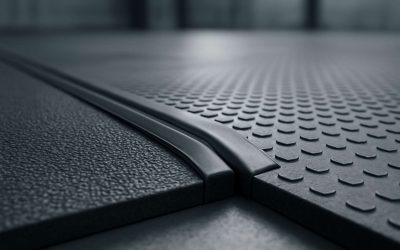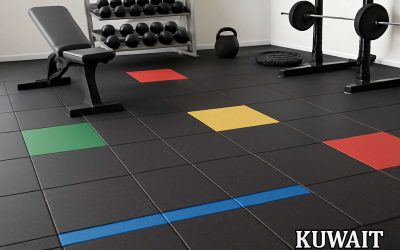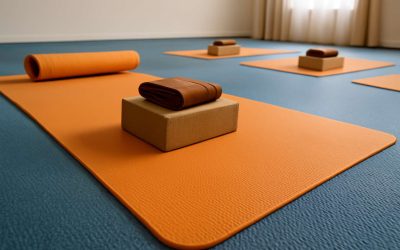Rubber floor tiles are a durable flooring option for a wide range of indoor and outdoor applications. Available in both homogeneous and laminated designs, rubber floors are manufactured through a vulcanization process to create dense flooring that resists damage. Some types of rubber are naturally fire-resistant, but they must be treated with a flame retardant coating or an anti-static finish to further protect the floor and ensure safety for workers and visitors in areas where flammable materials are used.
Most rubber tile manufacturers began as companies that produced protective floor mats for industrial and commercial use, but they now offer a large range of residential floor options. These floors are usually crafted from a mix of recycled and virgin rubber, which helps reduce the impact on the environment while also creating an ultra-durable floor. Most rubber tile floors are poured and molded into a mat, making them easy to install on any flat surface.
They’re often made of interlocking pieces that fit together like puzzles to offer a true do-it-yourself installation with no need for adhesives. These tiles can be repositioned and replaced easily, which is a good feature for spaces where you’ll need to accommodate furniture, equipment or fixtures. Some interlocking tiles feature detachable edge pieces to make it easier for installers to work with tight corners and other irregular shaped rooms.
If you’re looking for a more permanent installation, many manufacturers also offer rubber floor tiles that can be installed with adhesive. These tiles are typically thicker and have a more traditional look and feel than the interlocking styles, making them ideal for areas where the floor will be subjected to heavy wear and tear. Many commercial and professional gyms choose these options to provide a durable floor for their high-impact workouts, including weightlifting, yoga and aerobics.
The primary drawback of rubber tiles is that they tend to cost more than other flooring options. However, this is often offset by lower maintenance costs (since the floor doesn’t require waxing) and long-term durability.
Rubber tiles can be installed over a variety of surfaces, but they work best on a clean, dry subfloor. You can install them over concrete, plywood, hardwood or ceramic or porcelain tile, but you’ll need to have the carpet removed beforehand if you’re installing over plush carpet. If you’re going to install over plush carpet, consider using the tiles that are designed for this material, which have a special foam backing to prevent slippage and protect against heat.
Another key consideration is that some rubber floor tiles are revulcanized, while others are not. Revulcanized tiles are like virgin rubber and have little to no odor, while the non-revulcanized options may have a slight rubber smell. It’s important to understand the difference in odor between these two products when choosing your flooring to avoid any unpleasant surprises down the line. If the odor is an issue, a simple deodorizing spray can help to clear up the problem in no time at all.



0 Comments